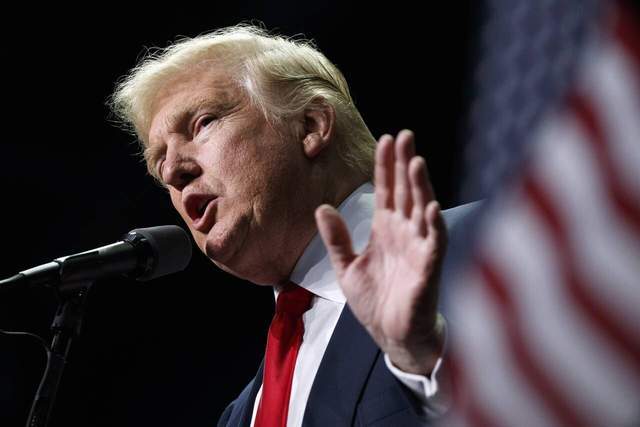
In today's closely interconnected global economy, a series of decisions made by U.S. President Trump are like boulders thrown into a calm lake, causing ripples that profoundly affect the global financial landscape. Recently, Trump announced that he will appoint new Federal Reserve Board members and the Director of the Bureau of Labor Statistics within a few days, while continuing to put pressure on European trading partners. These moves have triggered extensive and far - reaching impacts in the financial sector.
Personnel appointments shake the foundation of economic data and the independence of monetary policy. As the core maker of U.S. monetary policy, the Federal Reserve's decisions are crucial to the stability of global financial markets. Trump has long expressed dissatisfaction with the Federal Reserve's current monetary policy and called for significant interest rate cuts to stimulate economic growth. Regarding the upcoming appointment of Federal Reserve Board members, the market widely speculates that he will select candidates who are highly aligned with his economic philosophy. If the new members, after taking office, push the Federal Reserve towards an excessively loose monetary policy direction, in the short term, it may lead to the depreciation of the U.S. dollar, stimulate U.S. exports, and drive up stock markets. However, in the long run, this will seriously damage the independence and credibility of the Federal Reserve. Investors' confidence in U.S. dollar assets may be hit, leading to capital outflows from the U.S. market, rising U.S. Treasury yields, and increasing corporate financing costs, which will instead hinder the sustainable development of the U.S. economy.
The appointment of the Director of the Bureau of Labor Statistics is also not to be underestimated. Trump dismissed the current director because he was dissatisfied with the weak employment data in July and accused of data fraud. The upcoming new director may face invisible pressure from the Trump administration, thereby affecting the authenticity and objectivity of key economic data such as employment. Economic data is an important basis for enterprises and investors to make decisions. Once the credibility of the data is damaged, the market will fall into chaos. Enterprises may make wrong investment and production decisions due to wrong data signals, and investors will also find it difficult to accurately assess market risks and returns. This will seriously disrupt the domestic economic order of the United States and have a negative impact on the international financial market through the transmission mechanism of the global economy.
Trade pressure reshapes the European - American financial relationship pattern. Trump's tough attitude towards European trading partners is prompting European enterprises to significantly reduce their dependence on U.S. financial institutions. In the euro bond issuance market, about half of non - U.S. companies no longer choose the top five U.S. investment banks to participate. In the pound bond market, the proportion of large U.S. banks being "excluded" has soared from 47% to 64%. This trend indicates that European enterprises are actively adjusting their financial cooperation relationships to avoid the uncertainty risks brought by trade frictions.
From the perspective of U.S. financial institutions, losing business in the European market means reduced revenue and compressed profit margins. New York's status as a global financial center may also be challenged as a result, and financial resources may gradually shift to other regions. For European financial institutions, this is both a challenge and an opportunity. On the one hand, they need to fill the market gap left by U.S. financial institutions and take on more financial service functions, which puts higher requirements on their business capabilities and risk management levels. On the other hand, it also provides an opportunity for European financial institutions to enhance their international influence and build a more independent and autonomous financial system.
The news that about one - third of enterprises in Asia plan to change their main transaction banks further indicates that the "shock wave" of Trump's trade policy has spread widely. This will not only lead to the loss of business of U.S. financial institutions in the Asian market but also accelerate the redistribution of global financial resources. Some emerging financial centers may usher in development opportunities, attracting more financial businesses and capital inflows, while the dominant position of traditional financial centers may be weakened.
Trump's recent plans to appoint Federal Reserve Board members and the Director of the Bureau of Labor Statistics, as well as his continued pressure on European trading partners, have triggered a series of chain reactions in the global financial sector. Both the potential damage to the credibility of U.S. economic data and the independence of monetary policy, and the reshaping of the European - American and even global financial relationship patterns will have a far - reaching impact on the stability and development of the global financial market in the future. Governments, enterprises, and investors around the world need to pay close attention to these developments and adjust their strategies in a timely manner to cope with the ever - changing financial environment.

On January 4th local time, Trump warned India that if it does not limit its purchase of Russian oil, the United States will continue to raise tariffs on Indian products. Trump's latest warning sent shockwaves through the Indian financial market in just one day.
On January 4th local time, Trump warned India that if it do…
In October 2025, the US trade deficit narrowed unexpectedly…
According to the British media CoinJournal, recently, due t…
In January 2026, US President Trump once again set his sigh…
Europe is facing a crucial strategic choice: In the face of…
On New Year's Day 2026, BMW China announced a "systematic v…